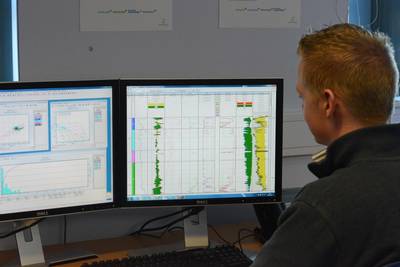New Distance Learning Program for MSc in Petrophysics
Global energy services company LR Senergy and the University of Aberdeen have developed a distance learning program that builds upon a collaborative initiative to attract much-needed petrophysicists into the energy industry from around the world.
The organizations joined forces to launch the MSc Petrophysics and Formation Evaluation program, which was initially designed as a modular initiative to allow a flexible approach for people wishing to combine studies with their work commitments on a part-time basis. The current cohort of students is due to complete the program in 2016.
In response to demand from prospective students, the basis of the program has been extended to allow participants to study on either a full-time or a distance-learning basis.
Students can now opt to attend either the 12 month, full-time course at the University or to take the distance learning option over 24 months. The current part-time option will no longer be available on an individual basis – although it could still be tailored and delivered in-house to companies wishing to offer the training to employees.
Iain Morrison, VP Technical at LR Senergy, said: “When we developed this program in collaboration with the University, we made it accessible to people already working in the industry with backgrounds in, for example, geosciences, physical sciences, mathematics or engineering and gave them the flexibility to study while they worked.
David Macdonald, Professor of Petroleum Geology at the University of Aberdeen, said: “This initiative is a unique partnership between academia and industry. It unlocks the huge potential of LR Senergy’s world-class training programs and fits well into the University’s strategy of developing a suite of Masters programmes that cover the whole exploration and production value chain.
Those taking part on a full-time basis will attend lectures, complete exams and undertake an independent project at the University over a 12 month period. Lectures are simultaneously recorded and participants of the distance learning option can either join the class via the web in real time or can subsequently watch the recording at their leisure. It will be interactive when live so that they can ask questions in a webinar style format while they can also choose to combine live classes with watching recorded lectures at a later date. Distance learners will sit exams in their respective countries.
Participants of both the distance learning and full-time programs share the same benefits in that they will be students of the University of Aberdeen and have access to online resources and library facilities.


